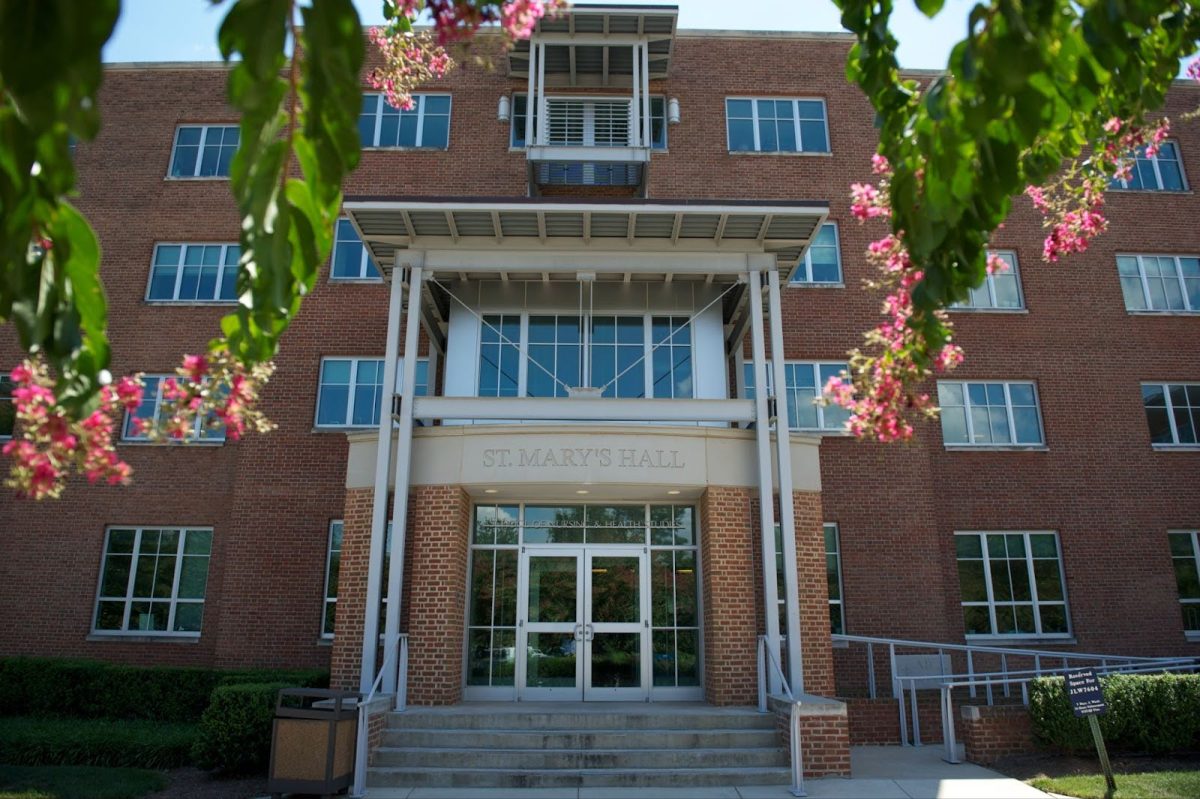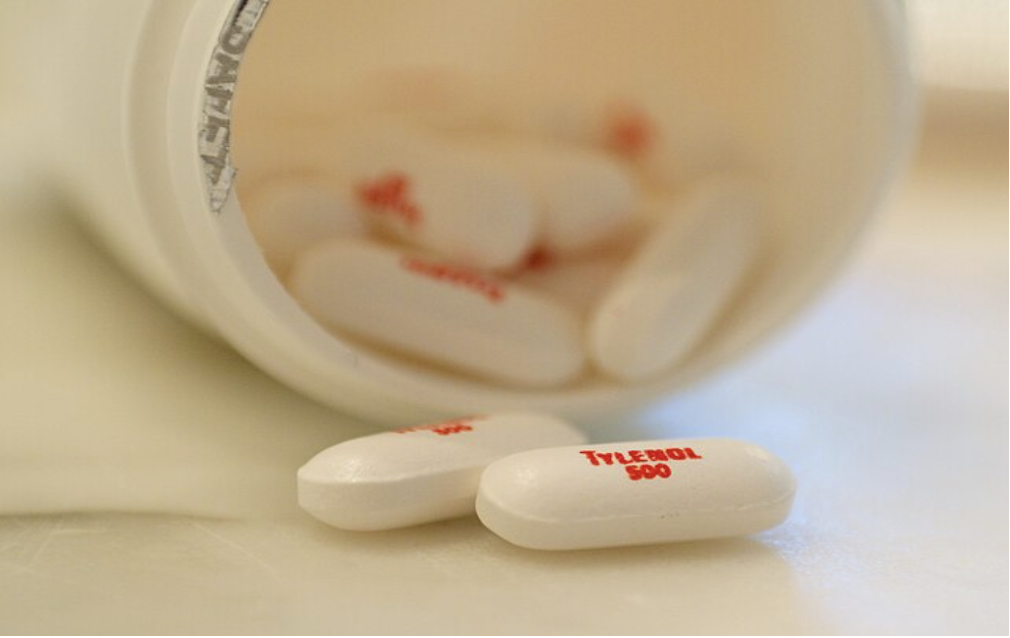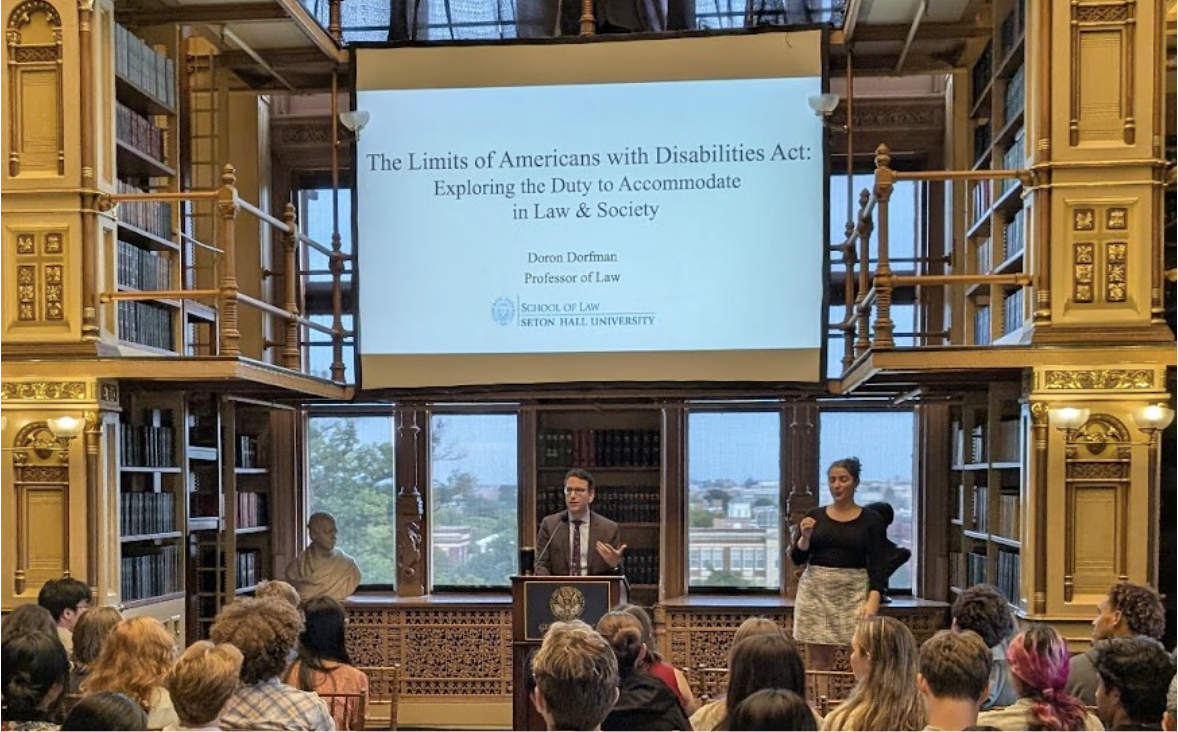A recently enacted policy penalizing absences or tardiness in clinical classes for students in the Georgetown University School of Nursing (SON) raised concerns regarding the lack of university support for transportation to clinical sites.
The policy, which began in spring 2025, says nursing students will be sent home if they arrive 15 minutes or later than the scheduled start time for patient care, resulting in an unexcused absence and failure for the clinical day. Even one such unexcused absence results in clinical probation, a drop in one letter grade for the course and possible course failure.
In light of this policy, students have raised concerns about the university’s failure to provide transportation, reimbursement or related resources to get students to their clinical sites.
Charlotte Smith (SON ’26) said she believes it is unacceptable for the university to not assist with transportation given the SON’s significantly smaller size compared to other undergraduate schools.
“Considering we are the smallest major and school at Georgetown, there is no reason that transportation is not at least paid for, if not organized by the school,” Smith wrote to The Hoya.
Shrishti Chhajlani (SON ’26) said clinical experiences are integral to the SON experience, especially in the final two years of the program.
“Clinicals are attached to our didactic lectures, and it’s seven or eight hours once a week where we go to a hospital and apply material we’ve learned in lecture in real life,” Chhajlani told The Hoya.
Although clinicals are a requirement for all SON students, students are responsible for arranging their own transportation to and from clinical sites across the Washington, D.C.-Maryland-Virginia area. Some students are required to travel up to 35 miles each way to get to and from clinicals and the university.
A university spokesperson said recent changes to the SON handbook were developed in consultation with the Academic Council, students who represent classmates to the administration.
“The School of Nursing recently updated the Bachelor of Science in Nursing (BSN) handbook related to attendance for lab and clinical experiences to provide guidance for students who may become ill or have life events that impact their attendance,” the spokesperson wrote to The Hoya. “The school engaged with faculty and undergraduate students on its Academic Council, who provided valuable consultation and feedback which was incorporated into these changes.”
The spokesperson said SON students will continue using the existing transportation policy.
“Students are required to provide their own transportation to and from the clinical setting and are advised of this requirement,” the spokesperson wrote.
One of Chhajlani’s clinical experiences this semester is in Germantown, Md., nearly two hours from the university by public transportation. With start times as early as 7 a.m. for many clinical days, according to Chhajlani, nursing students must often depart campus by 4:45 a.m.
Chhajlani said Georgetown’s lack of access to public transportation makes even Metro-accessible clinical sites hard to reach.
“Georgetown itself is not very accessible, so getting there is always a nightmare, especially in the mornings when it’s still dark and we’re a group of girls,” Chhajlani said. “If we’re taking an Uber, it costs between $50 and $70 one way.”
While the Georgetown University Transportation Shuttle (GUTS) route to Rosslyn begins service at 4:45 a.m., the route to Dupont Circle does not start service until 6 a.m.
Kyra Masone (SON ’26) said she was involved in a car crash while travelling via Uber with a group of students to her clinical site in Maryland.
“On February 13, my clinical group was traveling to a hospital in Maryland, which is about 50 minutes away, when our Uber was involved in a head-on collision at about 6:00 a.m. on the Clara Barton Parkway. Our driver was travelling the wrong way down a one-way street and caused a major accident on the way to our clinical,” Masone wrote to The Hoya. “So, not only are we expected to pay for our clinical transportation (this Uber was about $55), but we are not even sure we can get there safely.”
Masone said SON student representatives have been advocating for solutions for many years — to no avail.
“From what I have heard, our student leaders have repeatedly asked year after year for transportation, reimbursement or vouchers and it has been shot down without any explanation except for ‘we’re working on it,’” Masone wrote. “I’m not quite sure how organizing transportation or reimbursement takes 4+ years to implement, especially considering that other students are already receiving what we are asking for.”
Masone added that Georgetown’s lack of responsibility for this contrasts with its support for other courses and student activities requiring transportation.
“In one of my non-nursing classes last year, the class was provided about $300 in Uber vouchers to get 20 students to the Kennedy Center, which is about 2 miles away and the average Uber costs about $10-15 to get there,” Masone wrote. “Our hospital site is more than 25 miles away and the university provided us $0.”
Chhajlani said there is a wide range of solutions the university can implement, any one of which would make nursing students’ lives significantly easier.
“They can provide parking so that students can bring their own cars,” Chhajlani said. “They can give us money to take Ubers. They can provide any sort of transportation.”





